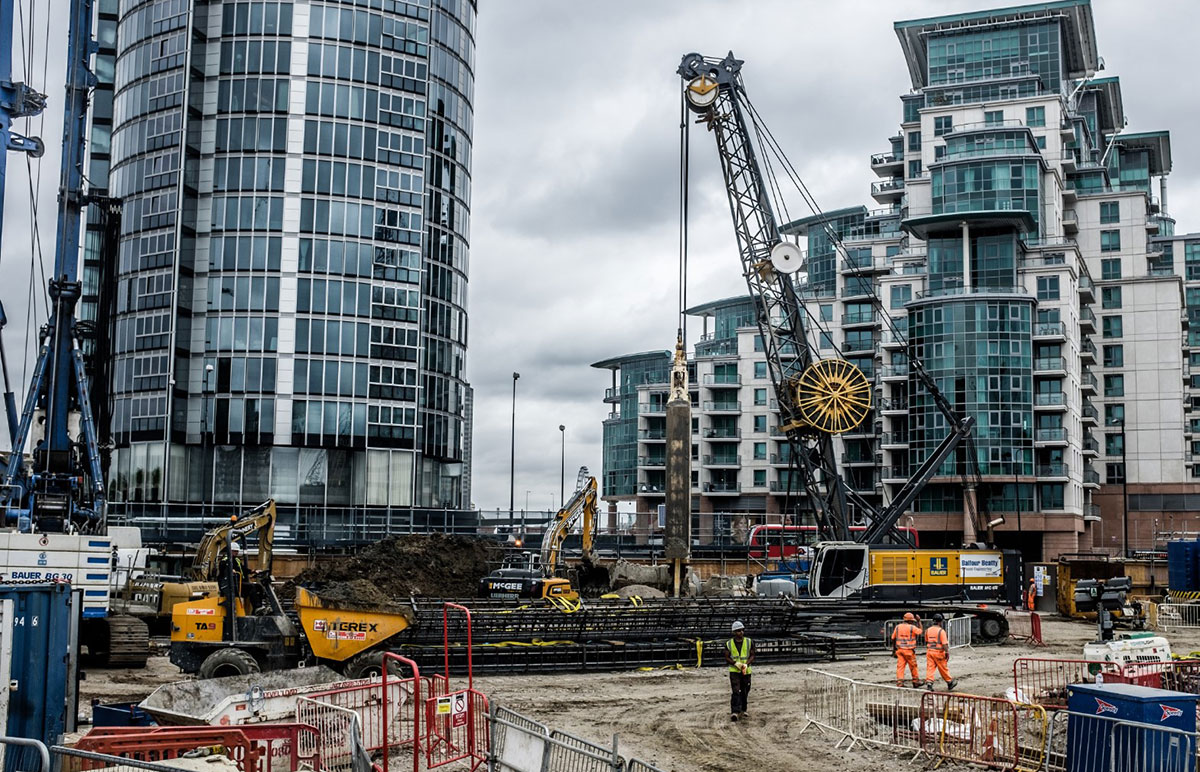Geotheta Can Be Fun For Everyone
Geotheta Can Be Fun For Everyone
Blog Article
Geotheta - Questions
Table of ContentsAll About GeothetaSome Of GeothetaThe Ultimate Guide To GeothetaThe Ultimate Guide To GeothetaThe Of Geotheta

They carry out website investigations, accumulate samples, carry out lab tests, and evaluate information to evaluate the suitability of the ground for building tasks - Consulting Engineers. Based on their findings, geotechnical designers offer referrals for foundation layout, incline stability, maintaining structures, and reduction of geotechnical hazards. They work together with various other specialists, such as engineers, architectural designers, and building and construction groups, to ensure that geotechnical factors to consider are incorporated right into the overall job layout and execution
By assessing the habits and residential or commercial properties of soil and rock, they can determine possible geotechnical threats such as landslides, soil negotiation, or incline instability. Their experience aids stop failings or mishaps that could jeopardize lives and home. Below are some in-depth obligations and responsibilities of a geotechnical designer: Website Investigation: Geotechnical engineers conduct website investigations to gather data on subsurface conditions.
They translate the data to comprehend the buildings and actions of the soil and rock, including their strength, leaks in the structure, compaction characteristics, and groundwater conditions. Geotechnical Evaluation and Layout: Geotechnical designers assess the information accumulated during site investigations to assess the stability and suitability of the website for building tasks. They execute geotechnical calculations and modeling to evaluate elements such as birthing capacity, settlement, incline stability, side planet pressures, and groundwater circulation.
Our Geotheta PDFs
Foundation Design: Geotechnical engineers play a vital function in developing structures that can securely sustain the desired framework. They evaluate the dirt problems and tons needs to establish the ideal structure type, such as shallow foundations (e.g., footings), deep foundations (e.g (https://www.dreamstime.com/ianhammond2191_info)., piles), or specialized techniques like dirt renovation. They take into consideration factors such as settlement restrictions, birthing capability, and soil-structure interaction to establish ideal structure layouts
They review building strategies, monitor website tasks, and perform area assessments to confirm that the layout referrals are adhered to. If unforeseen geotechnical problems emerge, they assess the circumstance and provide suggestions for removal or adjustments to the design. Danger Evaluation and Reduction: Geotechnical engineers examine geotechnical hazards and threats related to the job website, such as landslides, liquefaction, or dirt disintegration.

Partnership and Interaction: Geotechnical engineers function carefully with various other professionals associated with a job, such as architects, structural engineers, and building teams. Reliable communication and collaboration are vital to integrate geotechnical factors to consider into the overall project design and construction process. Geotechnical designers offer technical experience, answer questions, and make sure that geotechnical demands are satisfied.
How Geotheta can Save You Time, Stress, and Money.
Right here are some sorts of geotechnical engineers: Structure Engineer: Foundation engineers concentrate on creating and assessing structures for structures. They examine the dirt problems, lots requirements, and website features to figure out one of the most suitable foundation kind and design, such as shallow foundations, deep structures, or specialized strategies like pile foundations.
They evaluate the aspects affecting slope stability, such as soil properties, groundwater problems, and incline geometry, and create methods to avoid incline failings and minimize threats. Quake Designer: Quake engineers specialize in examining and designing frameworks to withstand seismic forces. They examine the seismic hazard of a site, examine soil liquefaction potential, and establish seismic design criteria to make certain the security and strength of structures during earthquakes.
They do area testing, accumulate samples, and examine the accumulated information to identify the dirt properties, geologic formations, and groundwater check these guys out conditions at a site. Geotechnical Instrumentation Designer: Geotechnical instrumentation designers concentrate on surveillance and measuring the behavior of soil, rock, and structures. They set up and preserve instrumentation systems that monitor variables such as dirt settlement, groundwater degrees, slope motions, and structural variations to examine performance and give early cautions of possible issues.
The Single Strategy To Use For Geotheta
They perform tests such as triaxial examinations, consolidation tests, straight shear tests, and leaks in the structure tests to gather information for geotechnical evaluation and design. Geosynthetics Designer: Geosynthetics engineers focus on the layout and application of geosynthetic products, such as geotextiles, geogrids, and geomembranes. They make use of these materials to boost soil security, enhance slopes, provide drainage services, and control erosion.
They tend to be investigative individuals, which indicates they're intellectual, reflective, and inquisitive. They are interested, systematic, logical, analytical, and rational. Some of them are likewise social, meaning they're kind, charitable, cooperative, patient, caring, practical, compassionate, tactful, and friendly - Consulting Engineer.
In the office setting, geotechnical engineers use specialized software application tools to perform estimations, produce layouts, and examine data. They prepare records, review task requirements, communicate with clients and staff member, and coordinate project tasks. The workplace setting offers a conducive setting for research study, analysis, and collaboration with other professionals involved in the project.
Excitement About Geotheta
They frequently see job sites to carry out site investigations, evaluate geotechnical conditions, and gather information for analysis. These brows through involve taking a trip to various places, occasionally in remote or tough surfaces. Geotechnical designers may perform dirt tasting, conduct tests, and screen building tasks to guarantee that the geotechnical facets of the project are being applied correctly.
Geotechnical engineers additionally function in specialized geotechnical labs. Geotechnical research laboratory designers function thoroughly in these environments, handling screening equipment, operating tools, and recording information.
Report this page